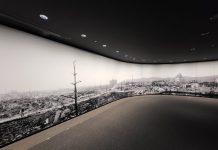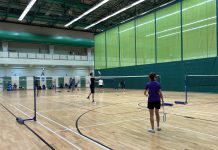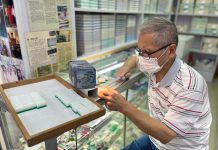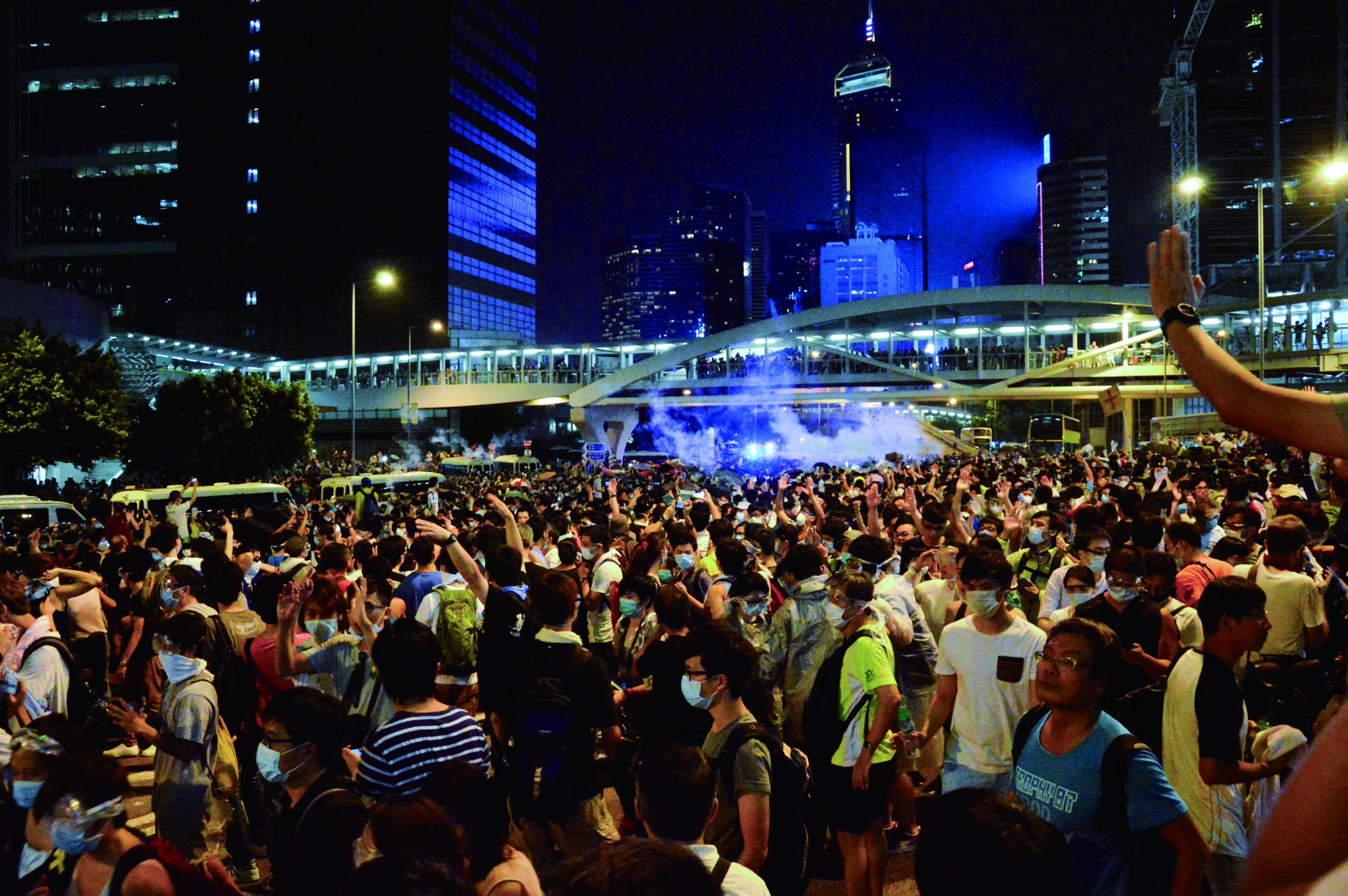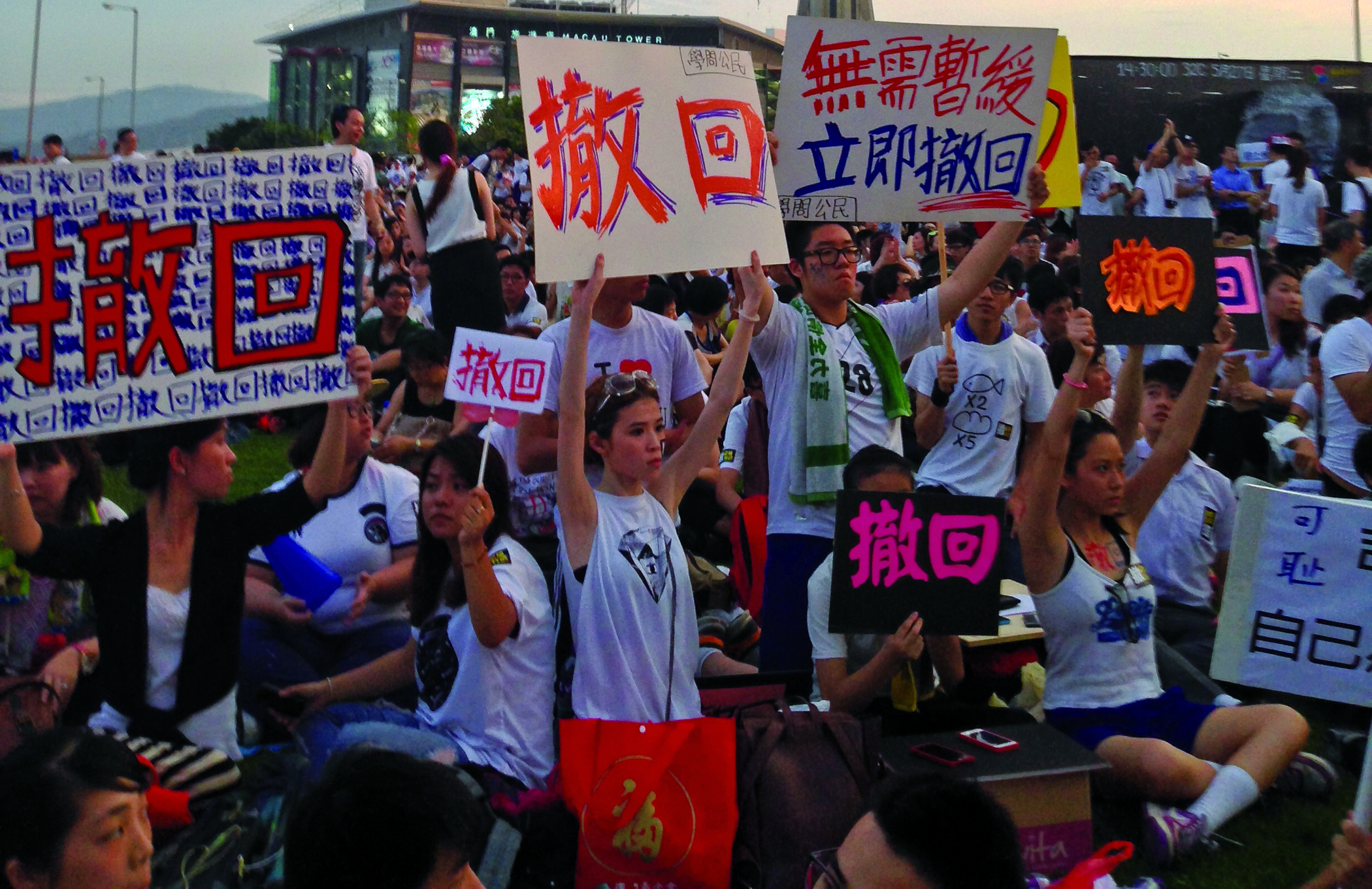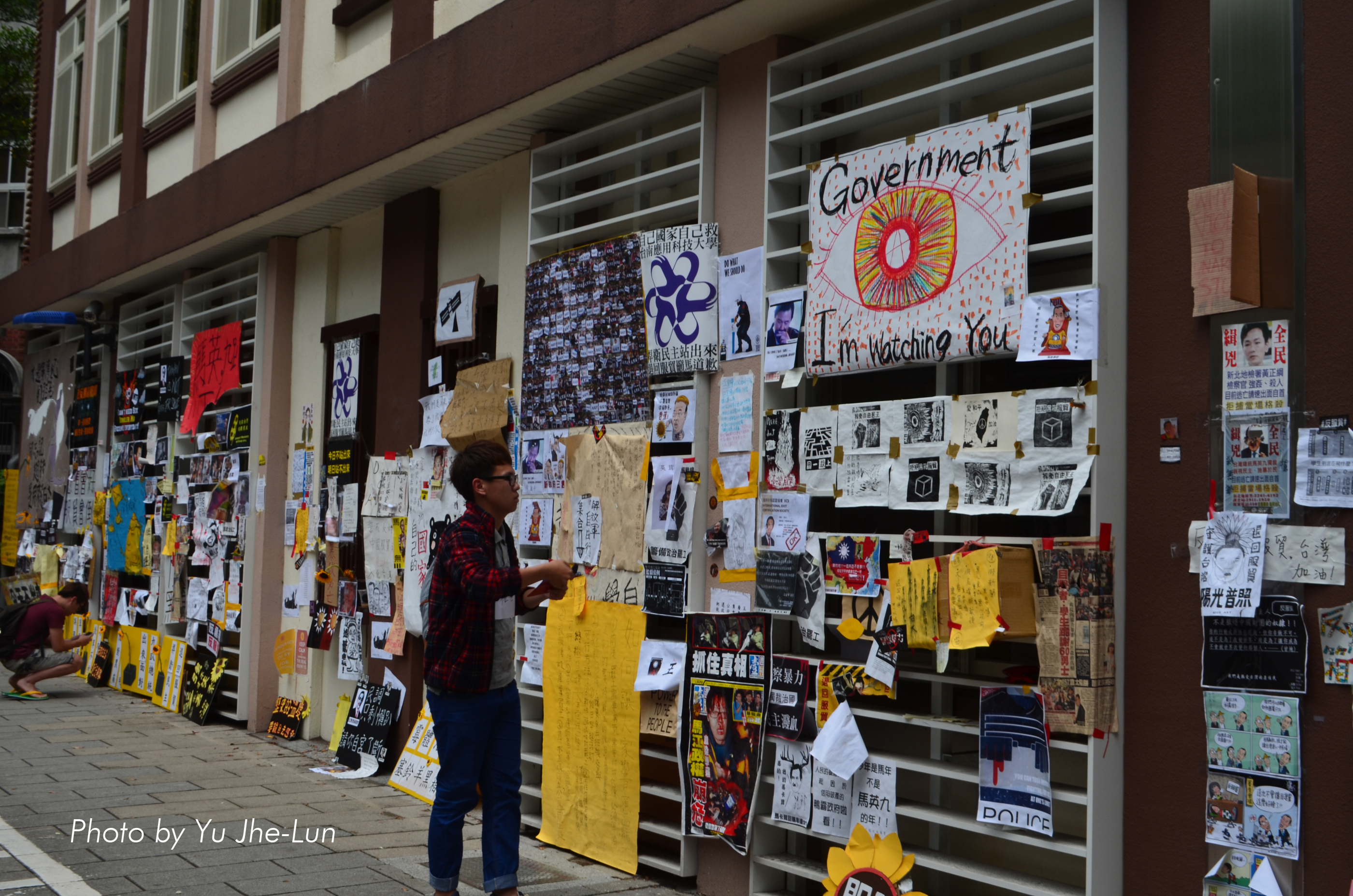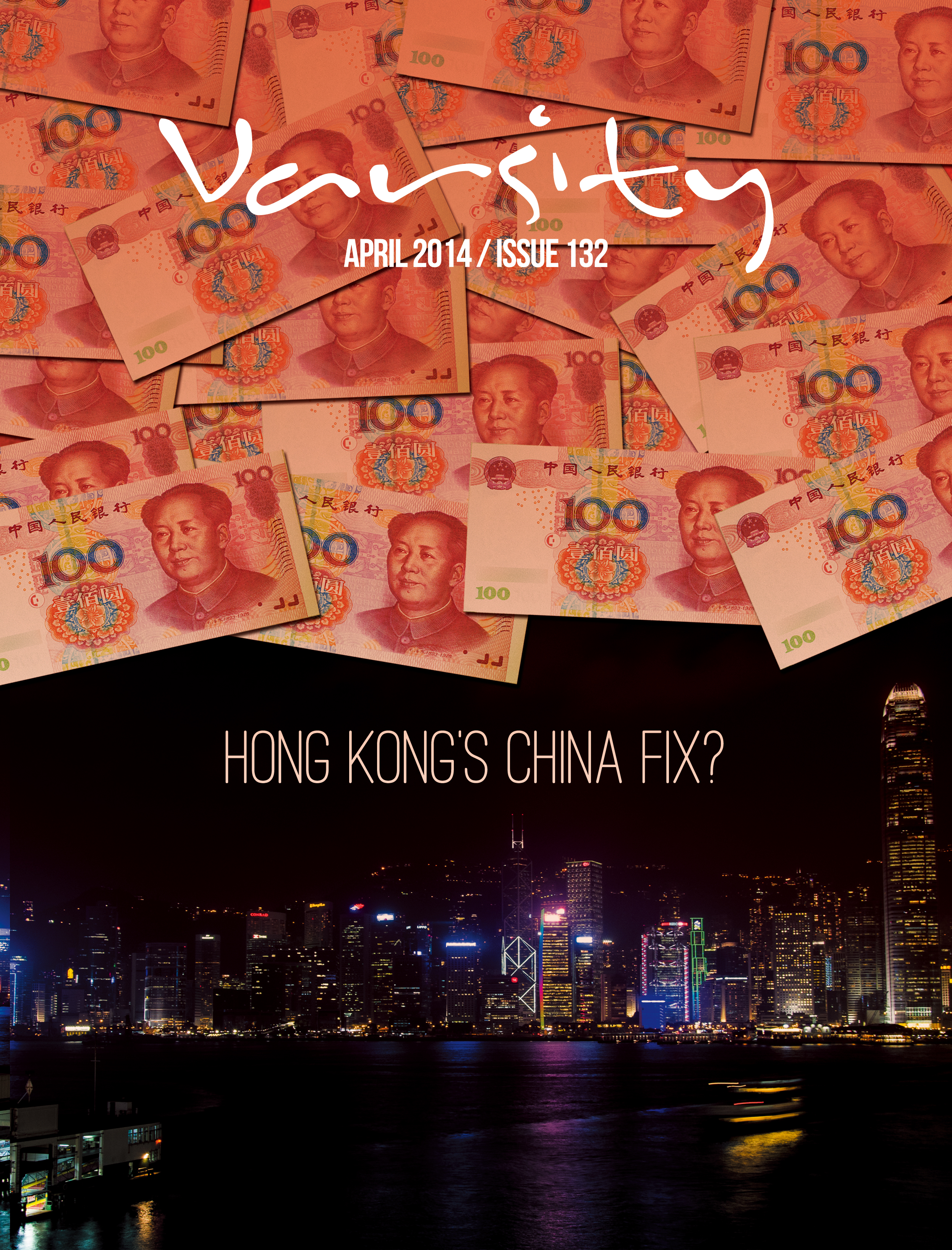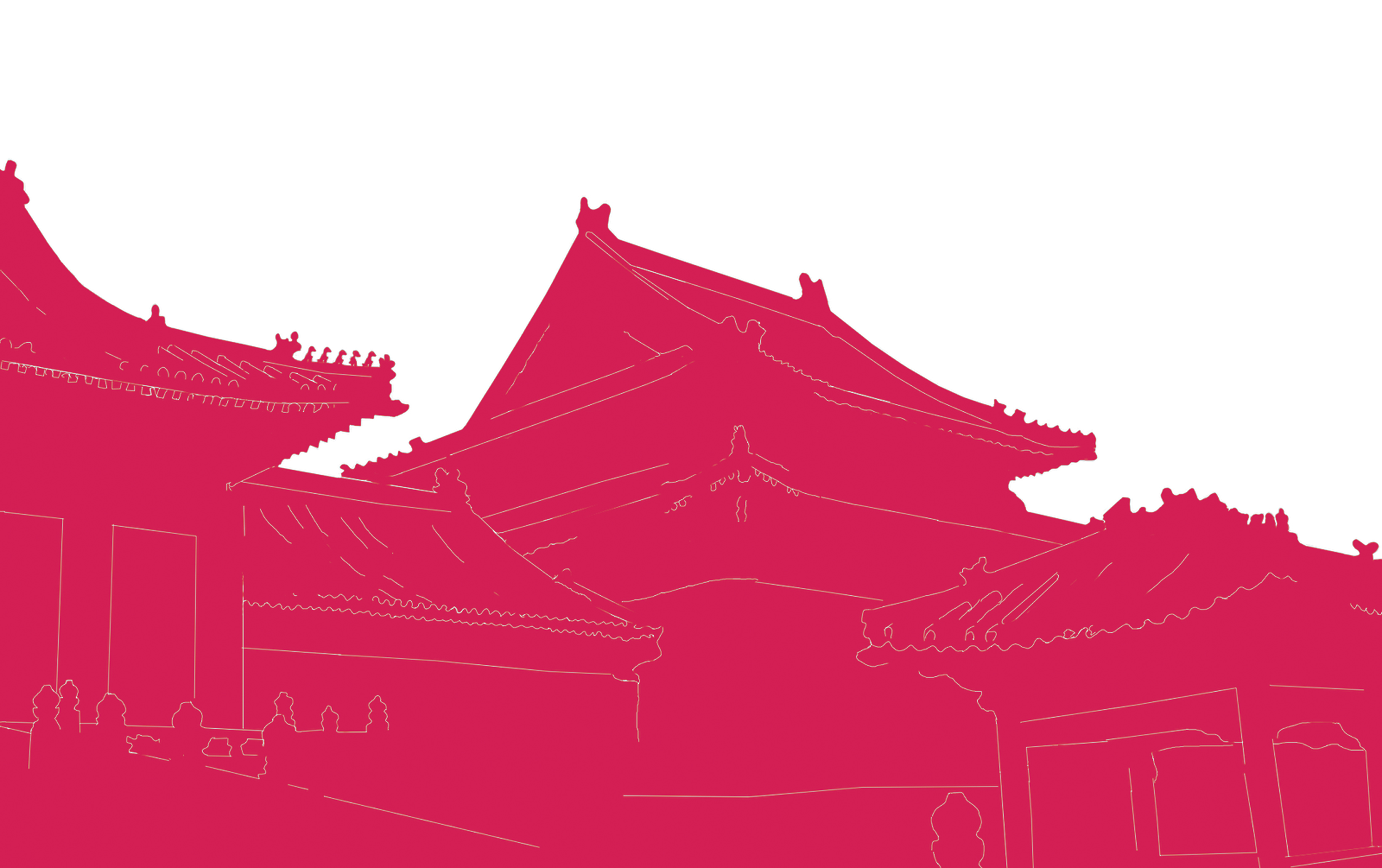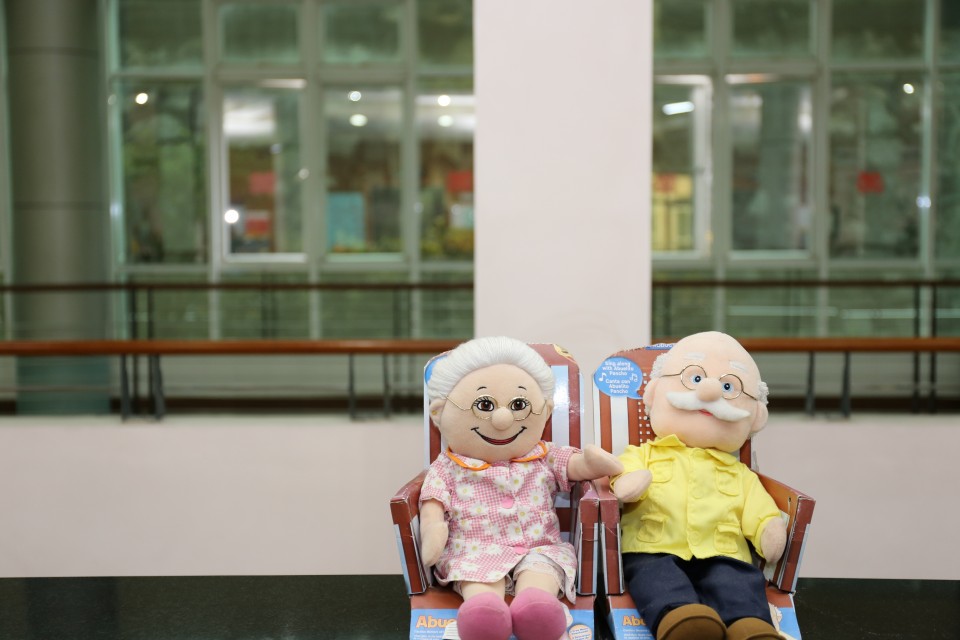November 2014 – Democracy in China’s Shadow
Protesters have occupied sections of streets in Admiralty, Mong Kok and Causeway Bay to demand free and open elections in the 2017 vote for Chief Executive. Varsity asks protesters, scholars and figures like Occupy Central co-founder Chan Kin-man and LegCo president Tsang Yok-shing about political reform after Occupy. Apart from Hong Kong, we also look at Macau and Taiwan, Chinese societies whose democratic development are affected to varying degrees by their relationship with mainland China.
Hong Kong after Occupy
More than a month after police teargas at protesters and tens of thousands of people took part in the occupation of areas in Admiralty, Mong Kok and Causeway Bay, the number of occupiers has fallen but many are still holding out to express their demand for what they see as true universal suffrage. Hong Kong's democratic journey did not begin with the Occupy Movement and it is unlikely to end once the occupiers have left the streets. Varsity asks how that journey will proceed after Occupy.
Against all odds: Macau’s democratic awakening
Long famed as a gambling and entertainment paradise, Macau is not exactly known as a place for political activism. Yet, in the past year, thousands of Macanese have taken to the streets to protest against an unpopular government policy, for labour rights and even in support of Hong Kong's Occupy Movement. Does this herald an awakening of Macau's civil society?
Today Hong Kong, Tomorrow Taiwan?
When students in Taiwan occupied the Legislative Yuan - in what became known as the Sunflower Movement - earlier this year to protest against a proposed trade pact with the Mainland, "Today Hong Kong, Tomorrow Taiwan" was a common refrain. Varsity looks at the lessons and insights that activists in the two places gain from looking at developments in Hong Kong and Taiwan.
April 2014 – Hong Kong’s China Fix?
In recent years, Hong Kong's government and business sector have increasingly looked to greater integration with the Mainland for development and growth. It cannot...
Learning the Mainland Way
Since 2009, Hong Kong students have been able to enjoy a fast-track to study at selected mainland universities. Now, the trend of Hong Kong youngsters seeking further education in the Mainland has been given another boost - in the form of cash allowances. As Varsity finds out, critics question what kind of education young Hong Kongers will receive in the Mainland and whether it is a good use of resources?
Cracking the Chinese Job Market
In his most recent Policy Address, the Chief Executive Leung Chun-ying called on Hong Kong's young people to grab the opportunities offered by China's vast market, to go and make their fortunes there. Varsity talks to Hong Kong people working in the Mainland and asks whether greater economic integration is the only way forward for Hong Kong.
Sunset Years in Guangdong
Could the Mainland, and Guangdong in particular, be an answer to the shortage of residential care home places for the elderly in Hong Kong? The government seems to think so, committing more money to buying places in Guangdong homes for Hong Kong seniors. But as Varsity hears, some elderly are uneasy about the arrangement because of the lack of affordable quality medical care on the Mainland.
March 2014 – For the greater good
Civil society is often referred to as the 'third sector', distinctive from government and business, and encompasses charities and non-government organisations. This edition of...
The Flip Side of Charity Law
Cases of improper fundraising and even fraud have raised public awareness about a lack of accountability and transparency in the way some charities are run. But a controversial proposal to establish a powerful charity commission to regulate charities was opposed by many groups who fear it could be used as a means to control charities. Although the plan has now been shelved, the debate highlights the difficulties of balancing accountability on the one hand and the autonomy of charities on the other.









